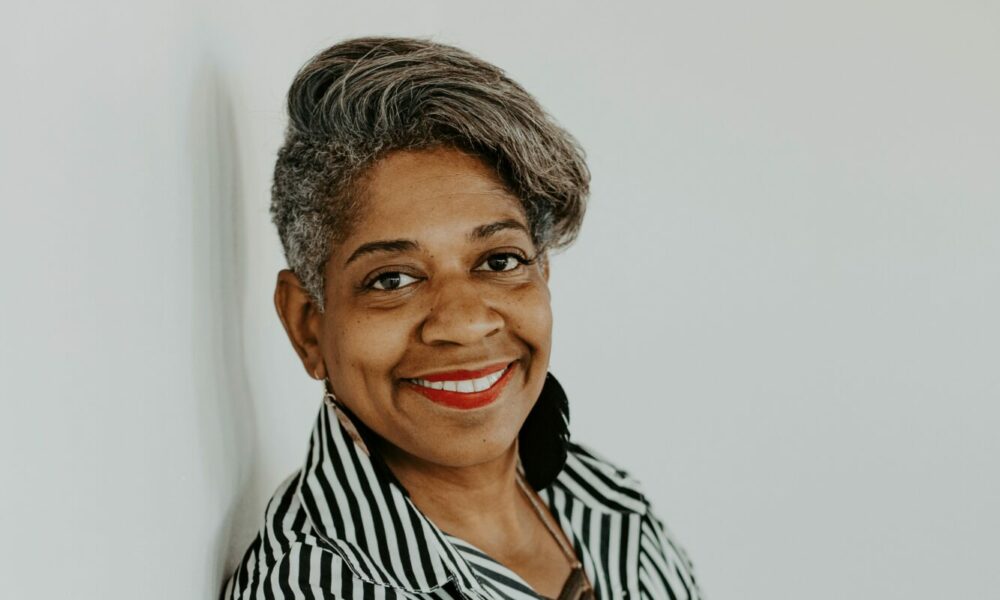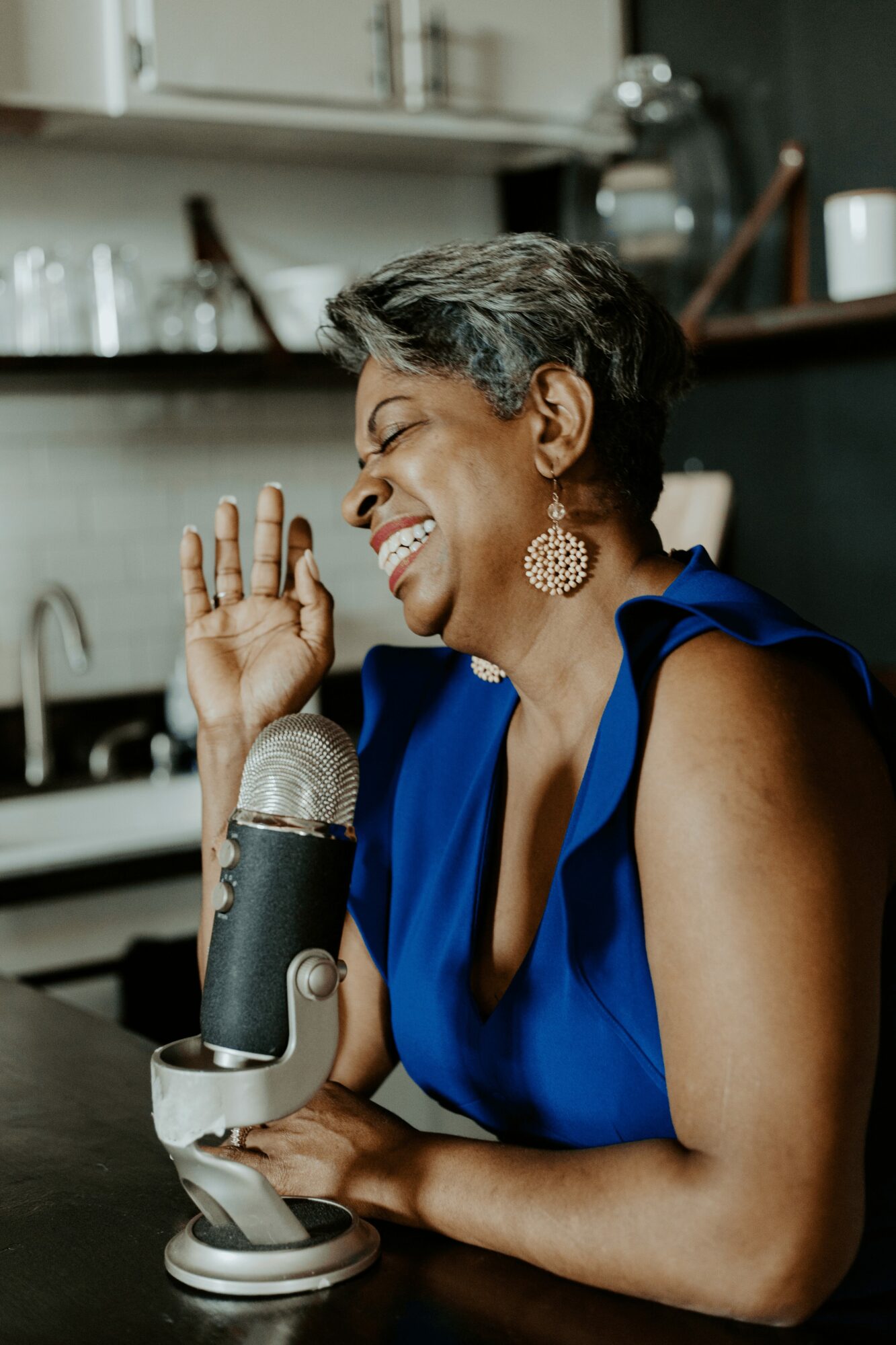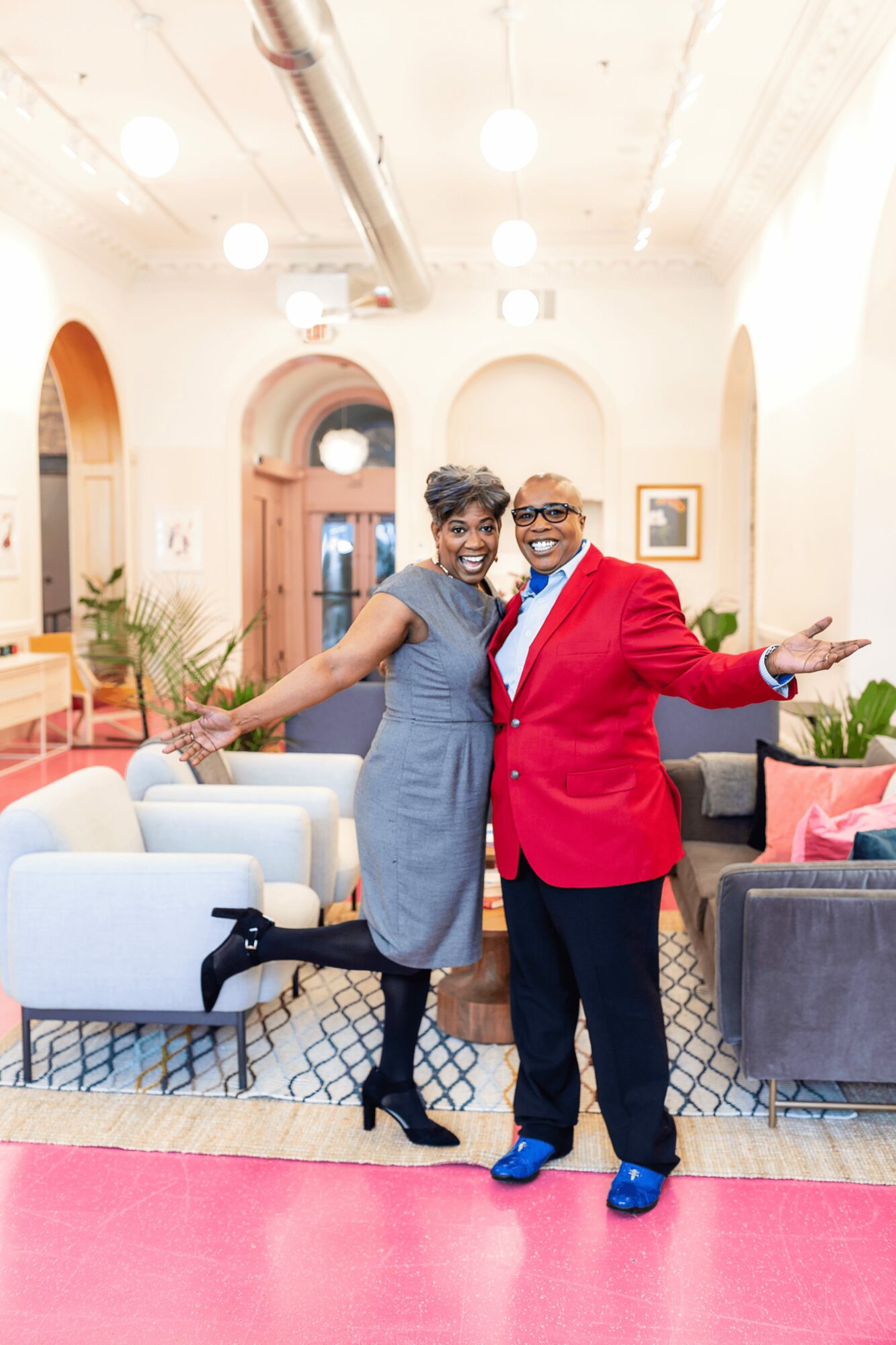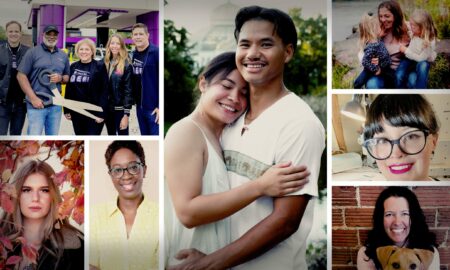

Today we’d like to introduce you to Cecilia Stanton Adams.
Hi Cecilia, we’d love for you to start by introducing yourself.
My career journey in Diversity, Equity, & Inclusion started two decades ago from a very personal place—a search for belonging. Growing up, I often felt the weight of not fitting in, where multiple facets of my identity weren’t wholly accepted or understood. This deep-seated feeling sparked my interest in diversity, equity, and inclusion; I was driven by a desire to create spaces for myself and anyone else who felt marginalized or unseen. I believe that this personal connection to the cause is what makes my approach to DEI so compelling and relatable. This personal mission propelled me into the DEI field during a time when ‘diversity’ was a new concept in many professional settings.
I began by helping organizations understand and implement early diversity policies, learning firsthand the complexities involved and the transformative impact of genuinely inclusive environments. I held many roles inside organizations where I was tasked with developing the first DEI initiative, including Dean of Students at Metropolitan State University, Director of Diversity for Buffalo Wild Wings, and Chief Diversity, Equity, & Inclusion Officer at Allianz Life. The profound changes I witnessed in these organizations, from increased employee satisfaction to improved business performance, were truly inspiring.
Inspired to deepen my impact, my wife, Malissa Adams, and I founded Stanton Adams Consulting and The Diversity Institute. Our goal was clear: to foster environments where every individual could thrive—where every identity could be embraced, not just acknowledged. We’ve since expanded our scope, offering various services from organizational assessments to tailored DEI training and strategic consulting. Each step in my career has been fueled by continuous learning and a commitment to evolution. Embracing a growth mindset and staying future-focused, we constantly adapt to new social dynamics and technological advances, ensuring our strategies remain relevant and impactful.
The feedback we receive drives me daily—the stories of changed organizational cultures, the individuals who feel seen and valued, and the leaders who’ve found a new way of understanding their role in creating equitable spaces. These outcomes affirm my path and inspire me to push further, ensuring that DEI is not just a trend but a permanent, integral aspect of organizational strategy.”
Can you talk to us about the challenges and lessons you’ve learned? Looking back, has it been easy or smooth in retrospect?
It has undoubtedly been a challenging road. One of the most persistent challenges I’ve faced is resistance to change. Diversity, Equity, and Inclusion work is fundamentally about altering the status quo, which can be uncomfortable and even threatening for some. Often, the resistance isn’t overt but comes in the form of skepticism or a reluctance to commit to the necessary changes entirely. Convincing stakeholders of the long-term value of DEI, beyond just the immediate legal or social pressures, requires persistent effort and a lot of patience. Furthermore, there are times when the journey gets particularly tough—when the team is exhausted, progress stalls or the continuous pushback drains our collective energy. In these moments, staying motivated is perhaps the most challenging. I’ve learned that the key to pushing forward is reconnecting with the core why of our work. It’s about remembering the individuals who no longer feel sidelined because of our efforts, and we forge ahead as we keep in mind the many communities still struggling to be seen.
Another vital aspect has been fostering a supportive community within and outside our organization. Sharing the burden, having open dialogues about our challenges, and celebrating small victories together make the journey less daunting. Encouraging self-care among my team and ensuring we all recharge is crucial in maintaining our long-term stamina for this challenging but gratifying work. These struggles have taught me resilience and the importance of a clear vision. They remind me why we started on this path and reinforced my commitment to continue driving change, no matter the obstacles.”
Thanks for sharing that. Please tell us more about your business.
Stanton Adams Consulting and The Diversity Institute represent two distinct but interconnected facets of our mission to integrate Diversity, Equity, and Inclusion (DEI) into the fabric of every organization we work with. Here’s a deeper look into what each entity represents, what sets them apart, and why they are crucial in today’s business and social landscapes.
Stanton Adams Consulting is where our journey began. As a consulting firm, we focus on helping organizations—from small businesses to multinational corporations—understand and implement effective DEI strategies. We specialize in creating customized solutions that address compliance and foster a genuinely inclusive culture. Our work here involves organizational assessments, strategic DEI planning, and tailored workshops and training designed to transform corporate cultures and operational strategies.
What truly sets Stanton Adams Consulting apart is our hands-on approach. We don’t just propose changes; we help implement them in a way that aligns with your organization’s core values and business objectives. This approach ensures that DEI is not just another initiative but a fundamental aspect of how your organization operates and thrives.
The Diversity Institute was founded as a natural extension of Stanton Adams Consulting but serves a distinct purpose. Recognizing the need for specialized training and development for DEI practitioners themselves, the Institute focuses on equipping DEI and HR leaders with advanced tools and knowledge to elevate their DEI work within their organizations. Our offerings here include intensive courses, certifications, and thought leadership sessions designed to deepen the expertise and effectiveness of professionals in the DEI field.
The Institute is unique because it provides a dedicated learning environment beyond the surface level of DEI practices. It is here that leaders come to learn not only about the latest in DEI strategies but also how to lead change and measure its impact within their organizations effectively. This focus on developing leadership competencies in DEI sets The Diversity Institute apart from the broader consulting services offered by Stanton Adams. Brand-wise, I am most proud of how both arms of our operation uphold the integrity and passion that ignited this journey. Our brand is synonymous with transformative change, innovative approaches to long-standing challenges, and a relentless commitment to inclusivity and equity.
For our readers, I want you to know that whether you are looking to transform your organization’s culture through comprehensive DEI strategies or you are a DEI or HR professional seeking to advance your skills and impact, Stanton Adams Consulting and The Diversity Institute offer the expertise, support, and community needed to achieve these goals. We are here to guide you through each step of your DEI journey, ensuring that it leads to meaningful and sustainable outcomes.
What changes are you expecting over the next 5-10 years?
Despite recent pushback against Diversity, Equity, and Inclusion (DEI), forward-thinking organizations recognize that embracing DEI is essential for maintaining a competitive edge. The changing demographics across the globe make DEI indispensable. Businesses that ignore this evolution and remain homogenous will likely face considerable challenges. These organizations risk developing significant blind spots that can hinder their ability to innovate and connect with a diverse customer base. Truly, for companies aiming to excel and grow in a diverse global market, integrating DEI isn’t just a moral choice—it’s a strategic imperative. Over the next 5-10 years, the DEI (Diversity, Equity, and Inclusion) industry is poised to undergo several significant transformations as it becomes increasingly integral to the core strategy of organizations globally. Here are some of the anticipated shifts, changes, and trends:
- Greater Integration with Corporate Strategy
DEI will move from being seen as a standalone initiative to a fundamental corporate strategy and governance component. DEI professionals must understand cultural and social dynamics and grasp business operations and strategy. The expectation will be for DEI outcomes to be directly linked to business performance metrics. - Expansion of DEI Beyond Gender and Race
While gender and race are central aspects of DEI, the scope is expanding to include a broader array of factors such as neurodiversity, mental health, socioeconomic status, and more. This wider perspective on diversity will lead to more comprehensive and nuanced DEI strategies that reflect the full spectrum of human experience. - Technological Advancements in DEI
Technology will play a more significant role in the DEI field, with data analytics and artificial intelligence being used to provide deeper insights into DEI metrics and track DEI initiatives’ effectiveness. Technology will also aid in personalizing DEI training and development, making learning more accessible and tailored to individual needs. - Globalization of DEI Efforts
As businesses continue to operate globally, DEI strategies must become more culturally sensitive and adaptable to different geographical locations. This will involve understanding local cultural nuances and their intersections with global corporate policies, ensuring that DEI efforts are globally consistent and locally relevant. - Regulatory and Legal Changes
Expect more countries and regions to introduce laws and regulations that mandate specific DEI reporting standards. This regulatory push will increase the need for DEI professionals to be knowledgeable about compliance and legal frameworks related to equity and inclusion. - Focus on Intersectionality
The concept of intersectionality, which considers multiple aspects of identity and how they overlap, will become more central in DEI work. This shift will require DEI strategies to be incredibly nuanced and customized, addressing the complex realities of individuals’ experiences and identities. - Sustainability and Social Responsibility
By linking with environmental, social, and governance (ESG) criteria, DEI will become more pronounced. Organizations must demonstrate how their DEI initiatives contribute to broader societal and environmental goals, aligning DEI efforts with sustainable development objectives. - Increase in DEI as a Profession
The demand for qualified DEI professionals is expected to rise sharply. This will lead to more specialized education and training programs dedicated to DEI, similar to traditional business or technical education today.
These trends suggest a dynamic and evolving landscape for the DEI industry, indicating its growing importance and expanding role in shaping the future of work and society. As these changes unfold, they will bring new challenges and opportunities for DEI practitioners and the organizations they serve.
Contact Info:
- Website: www.stantonadams.com
- Linkedin: www.linkedin.com/in/cstanton
- Other: Subscribe on LinkedIn https://www.linkedin.com/build-relation/newsletter-follow?entityUrn=6916223957796806656


Image Credits
Celisia Stanton Photography











